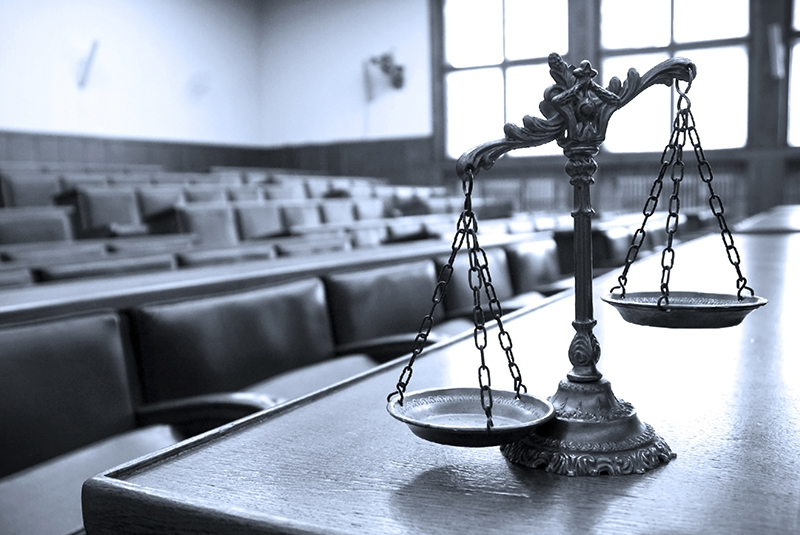Leading Federal Appeal Attorneys: Your Companions in Browsing the Appeals Process
Leading Federal Appeal Attorneys: Your Companions in Browsing the Appeals Process
Blog Article
Demystifying the Process of Federal Appeals: What You Need to Know
Navigating the intricate realm of federal appeals can frequently feel like passing through uncharted waters for those unknown with the process. Understanding the nuances of appellate court jurisdiction, the intricacies of filing a notice of charm, providing an engaging brief, and making a convincing oral disagreement are crucial elements that can significantly impact the end result of an instance. By deciphering the layers of intricacy surrounding federal appeals, individuals can obtain a more clear insight right into the mechanisms that regulate this critical point of the legal system.
Understanding Federal Appeals Refine
Digging into the elaborate realm of the government charms process unveils a methodical and organized trip with the judicial system - federal securities fraud appeal attorneys. Federal allures act as a critical mechanism for assessing decisions made by reduced courts. Recognizing this process is crucial for anybody involved in lawful procedures at the federal level
The procedure normally begins with a celebration disappointed with a reduced court's ruling filing a notification of appeal. This sets off a testimonial by a greater court, where a panel of judges examines the lawful arguments provided by both celebrations. Briefs laying out the legal thinking behind each party's position are sent, and oral disagreements might be heard to clarify intricate problems.
The appellate court's decision is based on a complete examination of the lower court's procedures and the disagreements offered. Once the appellate court reaches a choice, it can attest, turn around, remand, or change the reduced court's judgment, offering clearness and finality to the legal disagreement.
Appellate Court Territory Clarified

Appellate courts have jurisdiction over certain kinds of instances, normally those including legal mistakes, step-by-step concerns, or concerns of regulation rather than valid conflicts. The territory of appellate courts is usually outlined in laws and legislations that regulate the court system. Comprehending appellate court territory is essential for events involved in the appeals process as it identifies whether a case is qualified for testimonial and the level to which the appellate court can intervene in the reduced court's decision.
Filing a Notice of Appeal
The first action in commencing the government charms process entails filing a Notification of Appeal with the appropriate appellate court. arizona federal appellate lawyer. This vital file formally informs the court and the other celebrations associated with the instance that the appealing party plans to seek a testimonial of the lower court's choice. Filing a Notification of Appeal is a stringent procedural demand that establishes the appellate process moving
When preparing the Notice of Allure, it is important to make certain compliance with the certain rules and standards of the pertinent appellate court. The file has to generally consist of information such as the situation name, the reduced court's name, the date of the judgment being appealed, and a concise declaration indicating the premises for the allure.
Timeliness is of the significance when filing a Notice of Allure. Missing out on the deadline for submitting this paper can result in the appeal being rejected, emphasizing the importance of timely and precise initiation of the appeals process. It is a good idea to look for lawful guidance to navigate the complexities of filing a Notification of Charm properly.
Briefing and Oral Disagreement
In the appellate process, providing composed briefs and participating in dental debates play pivotal roles in advocating for the appealing celebration's setting prior to the appellate court. Briefs are extensive legal papers that lay out the parties' arguments, legal authorities, and evaluation sustaining their placements. These written entries provide the court with a detailed understanding of the facts of the case, the relevant law, and why the appealing party believes the reduced court's choice need to be rescinded.
Adhering to the entry and testimonial of the briefs, dental disagreements use the celebrations a chance to further clarify their positions, address any inquiries the appellate courts might have, and highlight bottom lines from their written briefs. Dental debates are a possibility for the attorneys to persuade the courts via spoken advocacy and responses to inquiries from the bench.

Receiving the Appellate Court Choice

Verdict
Comprehending the appellate court territory, filing a notification of appeal, preparing briefs, and providing oral disagreements are all essential components of this process. Eventually, getting the appellate court choice can provide clearness and resolution to lawful disputes.
As we advance from recognizing the federal charms procedure to studying the complexities of appellate court territory, a basic aspect comes to light relating to the authority and restrictions of these higher courts in the legal landscape. Appellate court territory refers to the extent of instances that a particular appellate court has the power to examine and determine upon. read the full info here Unlike test courts that listen to instances for the first time, appellate courts are limited to evaluating choices made by reduced courts. Recognizing appellate court jurisdiction is essential for celebrations included in the allures procedure as it establishes whether a case is eligible for review and the degree to which the appellate court can intervene in the lower court's choice.
Whether the appellate court verifies, turns around, or remands the reduced court's choice, comprehending the implications of the judgment is crucial for all parties involved in the appellate process.
Report this page